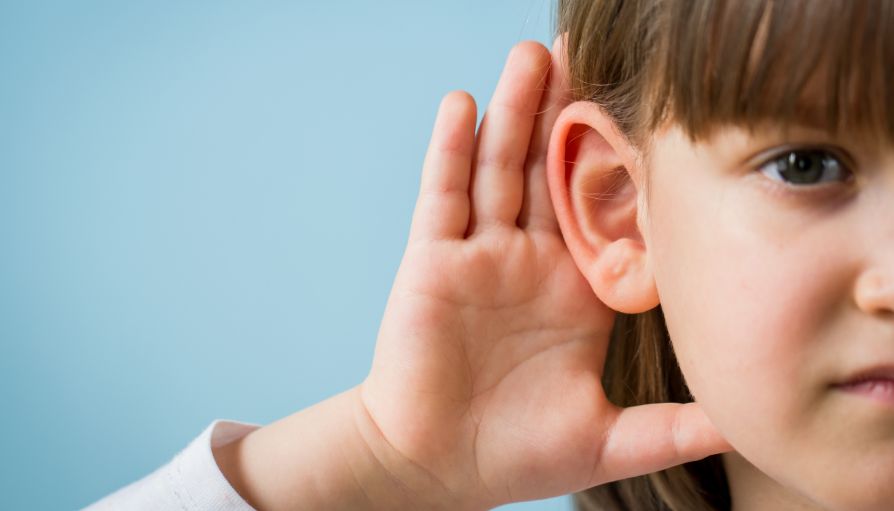When a mother sings a lullaby, she is sure that her little bundle of joy is hearing and enjoying it. But, it is necessary to find out if this is happening. Of course, every baby is unique and responds to sound stimuli differently. Therefore, a parent must monitor a child’s response to a range of sounds.
If your child has hearing problems, detecting them early and addressing them is essential.
There are sure warning signs to watch for, and these evolve as the child grows. Some of these are age-specific. From 0-3 months, a child should be startled by sudden loud noises. You should look out for whether your baby responds to the lullabies and be put at ease by soft sounds. Babies typically make vowel sounds like ‘aah’ and ‘ooh’ by the end of 3 months. If not, you should consider a visit to an audiologist.
In 4 months, parents should check if the child turns towards sounds beyond the visual range. Observe for change in the facial expression of your kid as a response to hearing different sounds. Rattles, bells, or horns should interest the child. By 6 months, babies start mimicking sounds and babbling. Some babies respond well to negative intonations like ‘NO .’ Checking out for auditory stimuli is one of the critical duties of a parent.
If your toddler doesn’t appear to be listening, it may signify a hearing loss. Other signs that indicate that your baby from four months of age may be suffering from a hearing loss are if he is not reacting to your voice and slow speech development.
A child should produce natural sounds or combine two or more words within two years. If that’s not happening, you need to worry about your child’s hearing.
Causes of hearing problems
Infant hearing problems can be primarily due to an infection in the middle ear because of fluid collection behind the eardrum. In some cases, this may lead to permanent hearing impairment.
Sadly, some babies are born with hearing disorders. This may be due to developmental problems in the womb or if the mother is diabetic, or if she develops a condition called preeclampsia during pregnancy. Otosclerosis, an inherited condition, can prevent the ears of nerves from working correctly. A severe head injury, damage to the cochlea from a head injury, unnecessary exposure to loud noise, meningitis, encephalitis, or too little oxygen at the time of delivery can be other causes of deafness.
Preventive measures
On many occasions, children with hearing loss are born to parents with normal auditory faculties. Many hospitals have a newborn hearing test, which is crucial in determining its auditory perception. But the gravity of hearing impairment can vary from baby to baby. In all said and done, determining an anomaly early helps you seek immediate counsel from your pediatrician about the way forward.
Professional evaluation
Despite having gone through tests as a newborn, children can develop hearing loss later. Connecting with ENT hospitals near you is very important as the child reaches its milestones.
When diagnosed and treated early, a baby with hearing loss can reach speech and language milestones just like normal children. Audiologists perform tests such as visual audiometry, in which a baby learns to link a sound to a visual element. In Play audiometry, children learn to carry out tasks when they hear specific sounds. Other tests include Pure Tone audiometry (older children), Bone Conduction Test (to see which part of the ear does not work), and The Tympanometry Test, which examines the eardrum’s flexibility.
Hearing aids help children of all ages and based on these test results, and health care professionals recommend proper treatment and hearing aids for your child.
Implants
If hearing aids do not give the desired results, doctors may recommend cochlear implants for your baby. These tiny electronic devices that are kept in the inner ear are typically reserved for cases of extreme hearing loss.
Therefore, recognizing a hearing anomaly in your baby can be the first step toward seeking an effective treatment plan.
